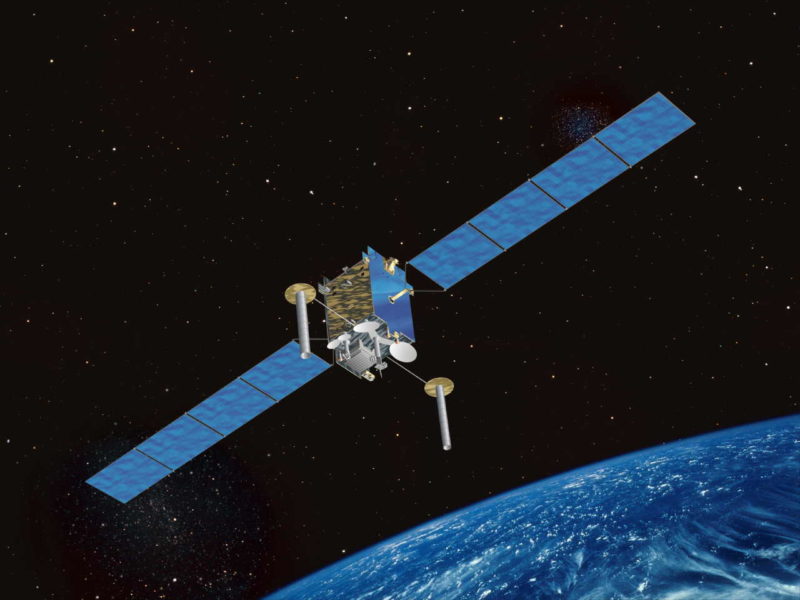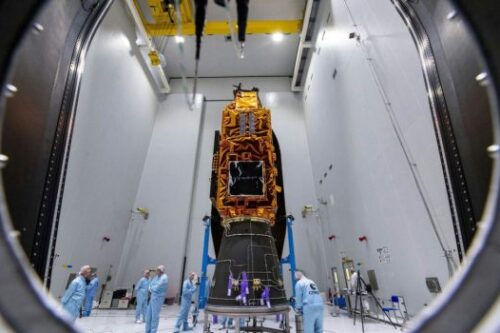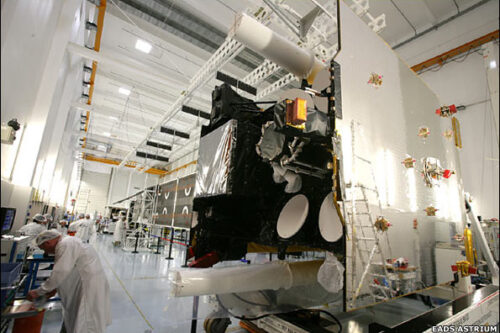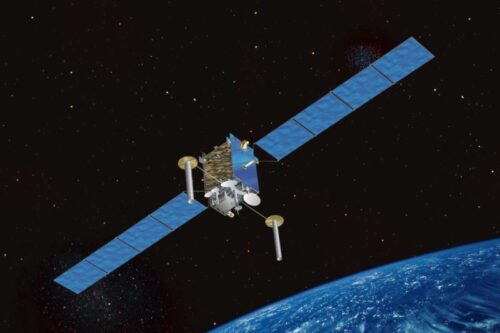
Back to selection
GEO Satellite
SKYNET-5A GEO
succesfull

Active
Launch date
11 March 2007
Country

Purpose
Military & Intelligence
Position
34° West
Manufacturer
Operator
Ministry of Defense UK
Launch operator
Launch vehicle
Ariane 5ECA
Expected lifetime
15+ Years

Skynet Satellite System: UK Military Communications Network
Skynet is the United Kingdom’s secure military satellite communications system, currently operated by Babcock International on behalf of the UK Ministry of Defence (MOD). The satellite network delivers strategic and tactical communications to the British Armed Forces, UK intelligence agencies, government departments, and allied nations.
Originally launched and managed by the Royal Signals and Radar Establishment and the Royal Air Force, Skynet has evolved through multiple generations. Since 2015, Skynet’s coverage was expanded eastward and, together with an Anik G1 satellite module over the Americas, now offers near-global connectivity.
Commercial and Allied Use
Under the Skynet partner program, Airbus Defence and Space—Skynet’s primary contractor—is authorized to sell surplus bandwidth to NATO and allied governments, including members of the Five Eyes intelligence alliance: the United States, Canada, Australia, New Zealand, and the United Kingdom.
As of 2020, the Skynet fleet consists of seven operational Skynet satellites, in addition to Anik G1, supporting a wide range of secure communications for defense and allied missions around the world.
Evolution of the Skynet System
-
Skynet 1–4: Initially developed and operated by UK defense agencies and the Royal Air Force.
-
Skynet 5: Deployed under private sector management by Paradigm Secure Communications, which became Astrium Services in 2012 and later merged into Airbus Defence and Space in 2015.
Skynet 6 and Future Plans
The UK MOD is now preparing to modernize its satellite communications infrastructure with the Skynet 6 program. Designed to replace Skynet 5, the new system will feature a flexible, hybrid architecture that integrates:
-
Existing Skynet 5 satellites
-
New UK-built satellites
-
Allied and commercial satellites
The Skynet 6 initiative is part of the MOD’s Future Beyond Line-of-Sight (FBLOS) program, which aims to maintain UK satellite communications capabilities through 2041, with estimated program costs around £6 billion.
GEO Satellite
SKYNET-5A
succesfull
GEO Satellite
SKYNET-5A
succesfull
GEO Satellite
SKYNET-5A
succesfull


